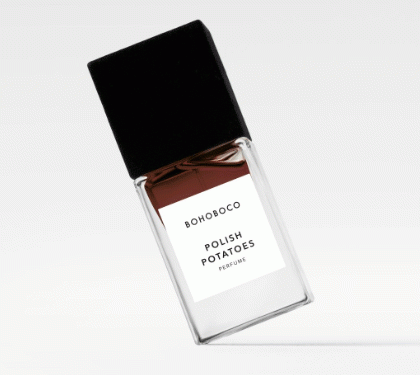In an unexpected yet intriguing twist, the Polish luxury brand Bohoboko has launched the world’s first perfume inspired by the scent of Polish potatoes. This new fragrance celebrates one of the country’s most beloved crops, blending the earthiness of potatoes with floral and spicy notes. Officially available in mid-October, the perfume has already gained substantial attention through preorders and social media buzz.
Potatoes, which have a deep cultural and historical connection to Poland, are featured prominently in traditional Polish cuisine. Without them, signature dishes like pierogi, potato pancakes, and kotlet schabowy (pork cutlet with potatoes) would be incomplete. Recognizing this heritage, Bohoboko sought to pay homage to Poland’s agricultural roots through the development of this fragrance.
The perfume’s composition is a masterful blend of noble potatoes combined with accents of rose, heliotrope, and clove. The creators of the perfume describe it as capturing the essence of “an empty market at dawn” that was once bustling with life, with the aroma of earth, wood, and sweet earthy notes leaving a lasting impression.
The inspiration for this scent is not just rooted in Poland’s culinary traditions but also in the historical journey of the potato in Europe. Potatoes arrived in Poland during the 16th century, brought over by Queen Bona Sforza, wife of King Sigismund I. Initially grown as ornamental plants, their nutritional value soon made them a staple food by the 19th century, becoming an integral part of Polish diets.
As unique as the idea behind it, the perfume comes with a luxury price tag—50 ml will cost around 665 PLN (approximately 154 EUR). This premium pricing aligns with the niche nature of the product, which blends luxury with a cultural icon of Polish heritage.
Bohoboko’s potato-scented perfume is a bold statement, merging the rustic with the luxurious. By turning a humble crop like the potato into a luxury fragrance, the brand has brought a fresh perspective on the value and cultural significance of agricultural products. For farmers, agronomists, and those in the agricultural sector, it is a reminder of how deeply rooted crops are not only in sustenance but also in culture, art, and now even luxury.







